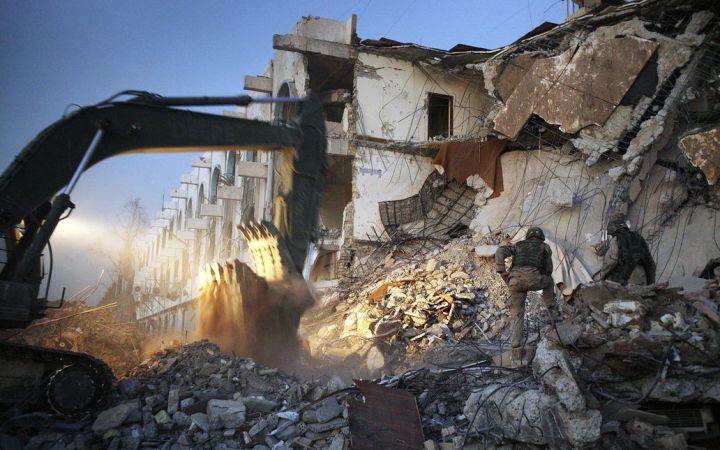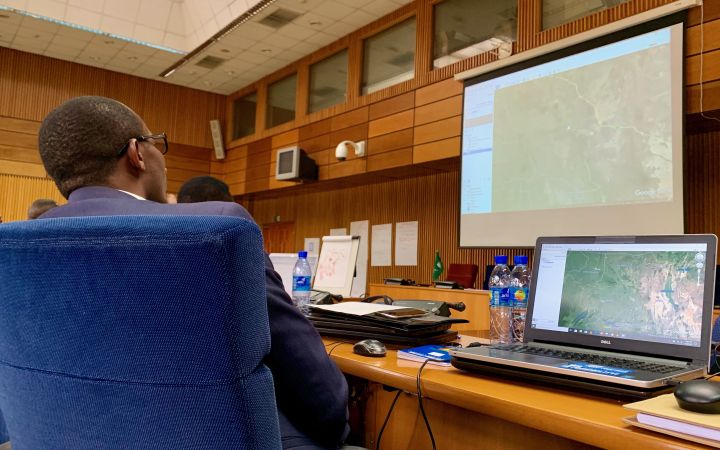Terrorism Remains a Major Threat
Radicalization, violent extremism and terrorism sit at the forefront of today’s policy discussions and remain major challenges to peace faced in today’s world. Although the 2019 Global Terrorism Index has indicated a 15,2 % fall in the number of fatalities caused by acts of terrorism worldwide in 2018, the terrorist landscape and its impact have remained complex and widespread. In 2018, the overall impact of terrorism was still higher in 80 countries when compared to five years ago. Many armed conflicts are linked to violent extremist groups, causing displacement, economic devastation and despair in regions. In order to respond to the challenge terrorism poses on a regional, national and international level, there is a greater need for further coordinated, multidimensional and regional solutions.
Respect for Human Rights and Rule of Law Are Critical
The respect for human rights and the rule of law is thereby critical to counter and prevent terrorism. According to the UNDP report “Journey to extremism in Africa Drivers, incentives and the tipping for recruitment”, misconduct of security forces has been identified as a “direct trigger for recruitment in the final stages of the journey to extremism”. Therefore, security forces must respect human rights and must operate within the rule of law in order to counter terrorism effectively and achieve sustainable and lasting peace. To strengthen operational and tactical capacities of security forces in line with International Humanitarian Law, Human Rights Law and principles in Protection of Civilians, UNITAR is providing training upon Member States’ requests.
Capacity-Building Solutions That Make a Difference
The dismantling of terrorist organisations demands strong capacities of a wide range of entities across the security sector. This also includes strategic, accurate and timely threat analysis to enable decision makers and action takers to react to immediate threats, enable early intervention and prevent violent attacks. C-IED and specialized tactical capacities, as well as operational planning, logistical and medical support, force protection and a number of other capabilities, are critical enablers to provide forces with the ability to efficiently conduct effective security operations.
UNITAR serves, according to its mandate, governments in their efforts to implement the 2030 Agenda for Sustainable Development and to battle global challenges such as those enshrined in SDG 16. UNITAR addresses through its capacity-centred solutions specific capacity gaps, the existence of which adversely impacts the implementation of regional, national and global efforts to counter-terrorism. Through its initiatives, UNITAR strives to achieve sustainable peace by enhancing local livelihoods and fostering local ownership.
UNITAR is dedicated to supporting governments in the establishment and building of self-sufficient institutions in their efforts to combat and counter-terrorism. UNITAR provides training and other capacity-building solutions aimed at strengthening operational and strategic efforts of key entities.
In order to enhance the capabilities of entities to quickly respond to emerging conflicts and adjust the intervention strategies, UNITAR can also bring in its unique experience in geospatial data and satellite imagery analysis. UNITAR’s specialized Division for Satellite Analysis and Applied Research (UNOSAT) has supported government agencies and international actors to respond rapidly to disasters and conflicts worldwide, saving thousands of lives.
In 2019, UNITAR conducted a training workshop for members of African Union Member States in conflict analysis, including geospatial and satellite imagery analysis. The training was organized in cooperation with the African Union Continental Early Warning System (CEWS).
In order to build local ownership and long-term sustainability of capacity development activities, UNITAR is utilizing the Training of Trainers approach (ToT). This approach includes training, coaching and mentoring and is designed to allow for a progressive transfer of knowledge and skills to training institutions and their personnel.
For more information, see also: Preventing and Countering Violent Extremism Conducive to Terrorism



